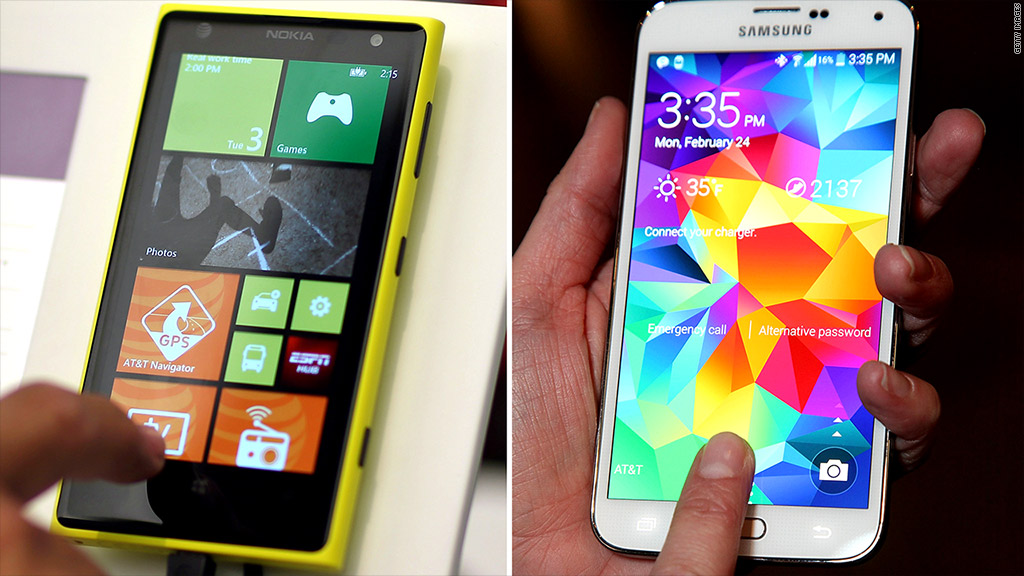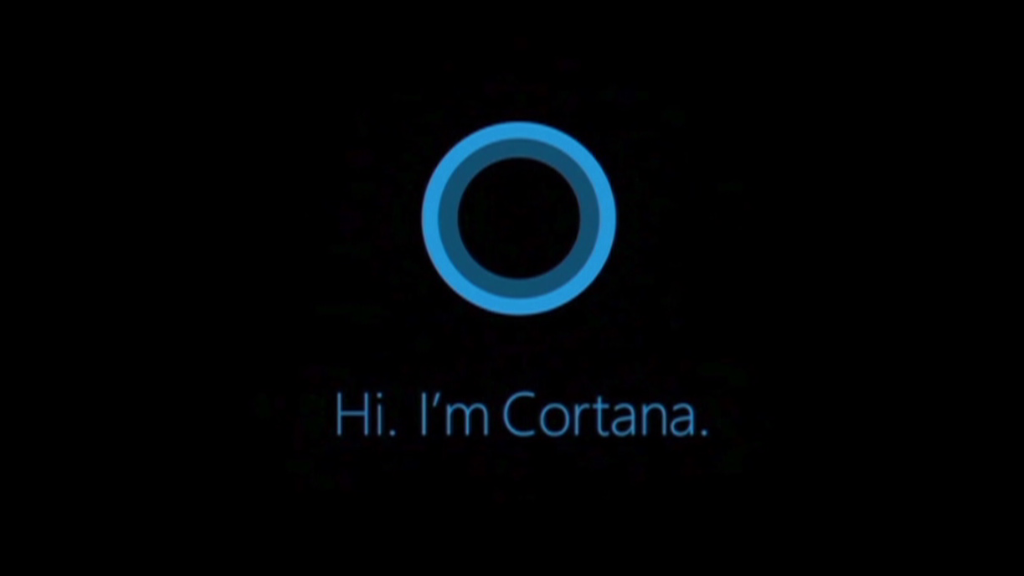
Microsoft has filed a lawsuit against Samsung, claiming the South Korean tech giant owes it money.
Samsung is supposed to pay Microsoft (MSFT) a royalty for every Android smartphone it sells. That's part of a patent-sharing agreement the two companies negotiated in 2011. But Microsoft claims that Samsung failed to pay it on time last fall and is refusing to pay interest on the late payment.
"After spending months trying to resolve our disagreement, Samsung has made clear in a series of letters and discussions that we have a fundamental disagreement as to the meaning of our contract," said David Howard, Microsoft's deputy general counsel, in a blog post on Friday.
Samsung did not immediately respond to a request for comment.
Microsoft and Samsung agreed in September 2011 to provide access to each other's patents. They never released the terms of the deal, and Microsoft's complaint redacted all the dollar figures. But Rick Sherlund, a telecom analyst at Nomura Securities, estimated that Microsoft makes $2 billion a year on patent royalties related to devices running on Google's (GOOGL) Android operating system made by Samsung and other companies.
Related: Justices limit patents on software technology
That would be more than 9% of the $22 billion in profit Microsoft made over its past fiscal year -- hardly chump change.

In its lawsuit, Microsoft alleges that Samsung had been making its payments on time until Microsoft announced it was buying Nokia's smartphone business last fall. Samsung used Microsoft's Nokia (NOK) purchase "as an excuse to breach its contract," Microsoft said in its blog post.
Microsoft also hinted -- not so subtly -- that Samsung was looking for a way out from the agreement. The company noted that since it signed the licensing pact, Samsung's Android sales have quadrupled, becoming by far the largest smartphone maker in the world. So those licensing fees have really started to add up.
Yet in filing the lawsuit, Microsoft has been put in an awkward position: Samsung is one of the few smartphone makers to design Windows Phone devices. Similarly, Apple (AAPL) partners with Samsung on some of the components inside iPhones and iPads, but the companies have been engaged in several bitter patent lawsuits.
Microsoft acknowledged the strange nature of its relationship with Samsung.
"Microsoft values and respects our partnership with Samsung and expects it to continue," Microsoft's Howard said. "We are simply asking the Court to settle our disagreement, and we are confident the contract will be enforced."

